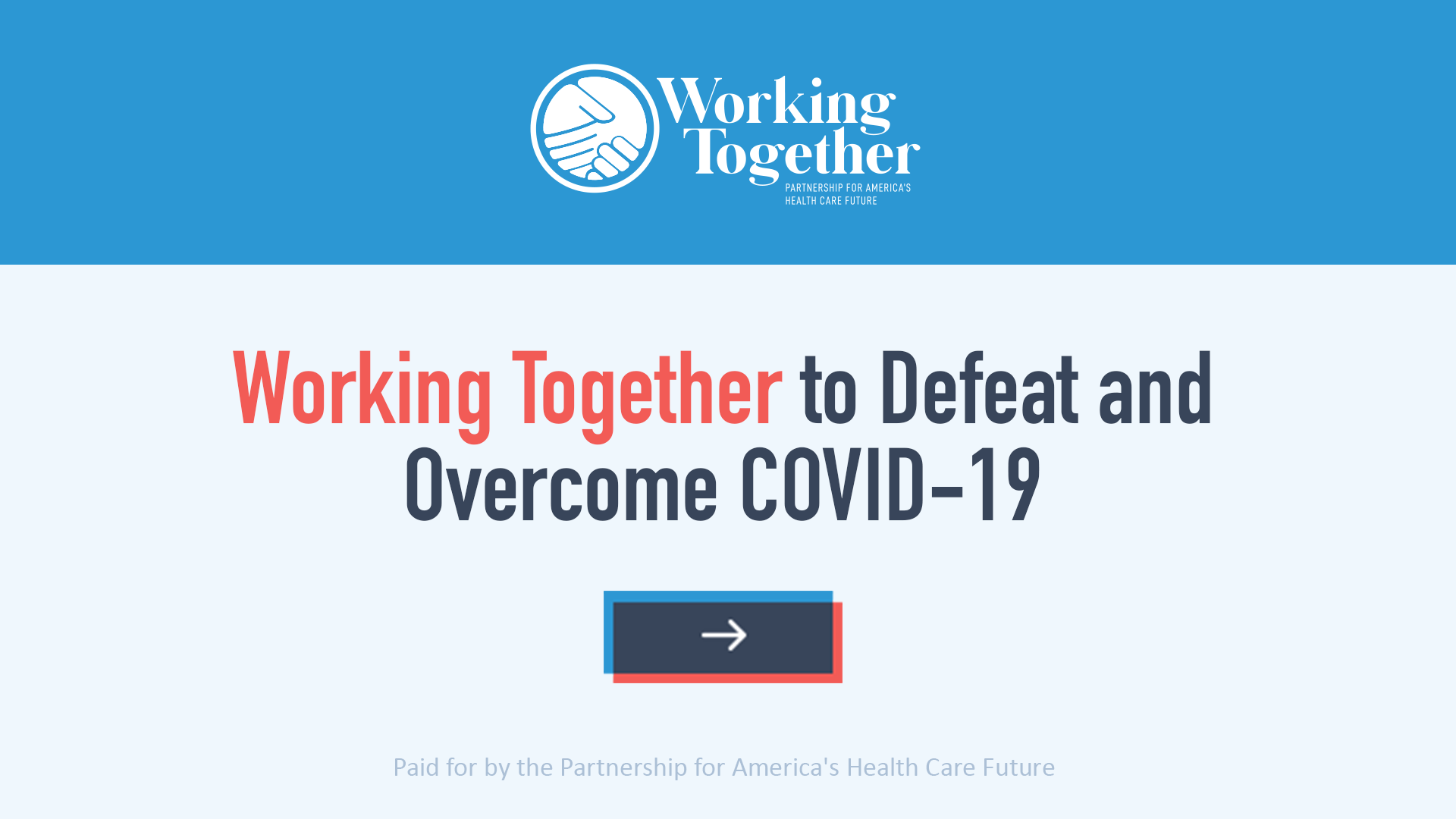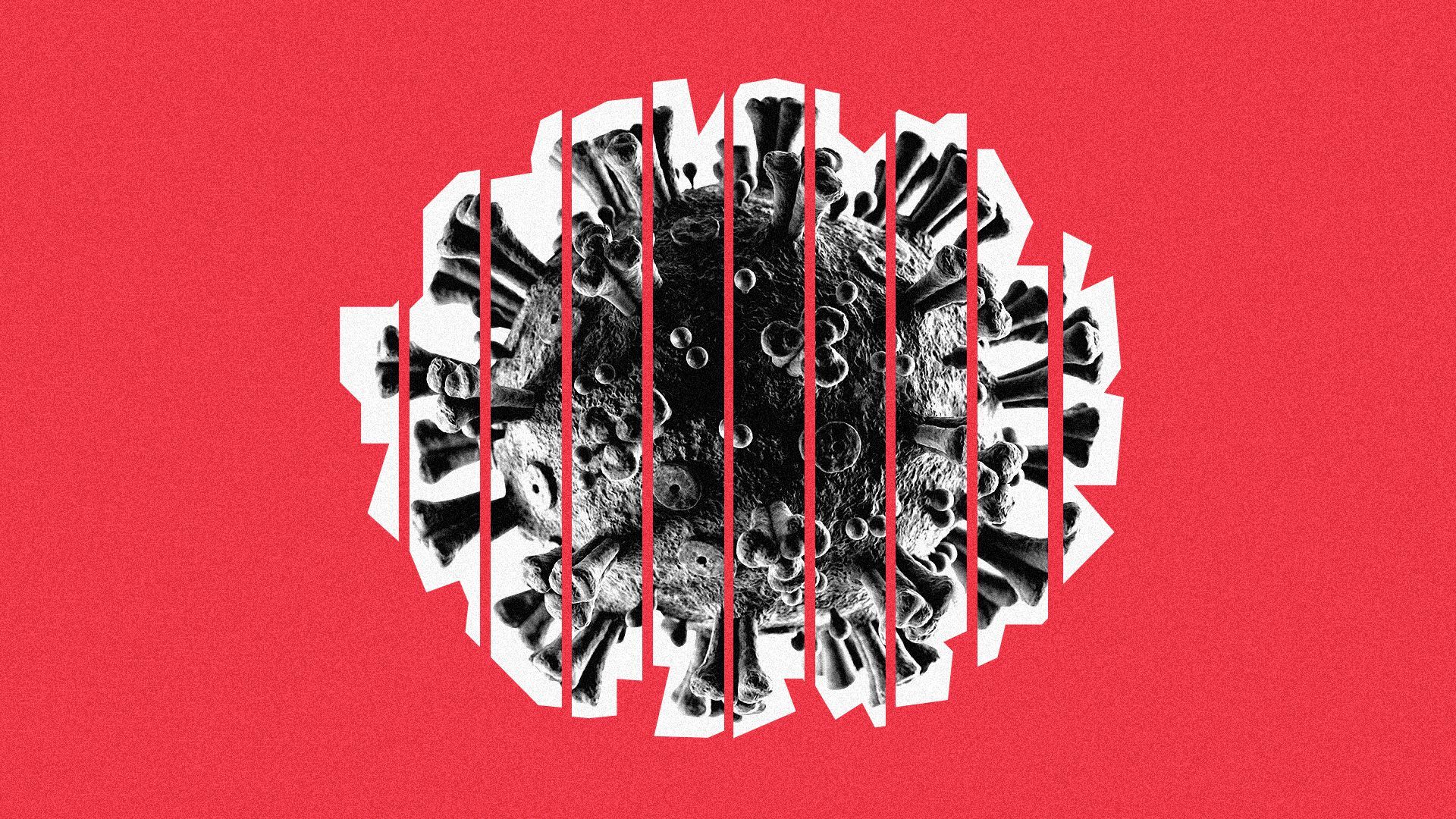| | | | | | | Presented By Partnership for America's Health Care Future | | | | Vitals | | By Caitlin Owens ·Jan 13, 2021 | | Good morning. - On Friday at 11 am ET, I'll be hosting a Twitter Chat with MIT Sloan visiting assistant professor Charles Senteio on the health inequities and mistrust surrounding the pandemic. Please tune in, and tweet us your thoughts and questions!
Today's word count is 897, or a 3-minute read. | | | | | | 1 big thing: How Biden could help speed up coronavirus vaccinations |  | | | Illustration: Sarah Grillo/Axios | | | | President-elect Joe Biden's ability to improve coronavirus vaccinations across the U.S. will largely depend on stronger partnerships with the states, experts said. Why it matters: The next several months will present a new, whack-a-mole set of problems, all with tough tradeoffs. The big picture: "I think that outreach and offering of assistance ... would be a different approach from what we've seen before during the pandemic," said Eric Toner, a senior scholar with the Johns Hopkins Center for Health Security. - "They should be asking each locale, 'What is it you need to meet this target we are setting for you?'" said Leana Wen, a visiting professor at George Washington University, adding that "the federal government can streamline" many inefficiencies for states and localities.
Details: Cities and states are facing a variety of challenges, and federal help would likely often involve working through individual locations' specific issues with them. - It could also mean communicating national best practices, sending teams of officials from the Centers for Disease Control and Prevention to help states on the ground, working with states on how to phase in different priority groups, and providing the resources — including funding — that states will need to run mass vaccination sites.
- The federal government could also incentivize efficient distribution by creating strict rules for states about how quickly they must administer doses before they're diverted elsewhere, Wen wrote in a recent Washington Post op-ed about how the federal government could speed up the vaccine process.
- It could also help with recruiting vaccinators by working with national associations, removing licensing barriers and covering liability protection, Wen adds.
Where it stands: The Trump administration announced yesterday that it's expanding access to the vaccines, and adopted on its own some of the changes Biden has said he would make. Go deeper. |     | | | | | | 2. The coronavirus variants: What you need to know |  | | | Illustration: Aïda Amer/Axios | | | | New variants of the coronavirus circulating globally appear to increase transmission and are being closely monitored by scientists, Axios' Marisa Fernandez reports. - So far, the variants do not appear to be resistant to the existing vaccines or cause more severe disease.
The state of play: Public officials are tracking SARS-CoV-2 variants, including the B.1.1.7 variant detected in the U.K., the 501.V2 variant in South Africa and a newly discovered variant in Brazil. The B.1.1.7 variant has been identified in about 45 countries, but nations without routine genetic surveillance, including the U.S., may not fully know the extent of the spread, sparking calls for increased monitoring. - On Friday, Public Health England released a new study of B.1.1.7 that estimated the variant is 30 to 50% more transmissible than other forms of the virus.
Japan's Health Ministry detected a variant on Sunday after travelers returned from Brazil. - There are still many unknowns, but scientists say it has 12 mutations and studies are underway on its efficacy against the vaccine.
The big picture: Viruses mutate, often without impacting the severity of disease or how the virus spreads. But sometimes mutations are consequential for public health and scientists say it's important to monitor them. - Both Pfizer and Moderna are in the process of testing their vaccines against the variants. Pfizer and BioNTech said Thursday the mutation N501Y found in both variants B.1.1.7 and 501.V2 was tested against their vaccine and found "no reduction in neutralization activity against the virus."
Go deeper. |     | | | | | | 3. 47% say vaccinations are moving too slowly |  Data: The Harris Poll; Chart: Axios Visuals Americans aren't thrilled with the vaccine rollout so far, according to new Harris Poll data shared exclusively with Axios. Why it matters: The Biden administration will take over right in the midst of one of the most complex and highest-stakes logistical efforts the country has ever seen — and getting it right will be both a political and public-health imperative, Axios' Sam Baker writes. By the numbers: A plurality of Republicans and independents, and a majority of Democrats, say the rollout is moving too slowly. - Among those who feel it's going too slowly, however, there's a sharp partisan divide over who's at fault: 60% of Democrats say President Trump is to blame, while a plurality of Republicans (36%) say state governments are the problem.
What's next: The Harris Poll — like the Axios-Ipsos Coronavirus Index — found an increasing number of Americans now say they're likely to get vaccinated. - 68% said they're likely to get a vaccine, which wouldn't be enough to achieve herd immunity, but those numbers could continue to rise.
- Among people who said they weren't likely to get vaccinated, some of the most common reasons included fear of side effects (55%), concerns about the fast development process (45%) and believing it won't work (36%).
- As more people get the shots without incident, some of those fears may be allayed.
|     | | | | | | A message from Partnership for America's Health Care Future | | Working together to defeat and overcome COVID-19 | | |  | | | | Americans are relying on our health care system now more than ever to provide the health coverage and care they need. That's why America's health care leaders are stepping up and working together to defeat and overcome COVID-19. Learn more. | | | | | | 4. 2020 sees boom in pharmacy jobs | | The enormous task of distributing the vaccine across America is leading to a spike in pharmacy job openings, Axios' Erica Pandey reports. By the numbers: Pharmacy job postings were up 9.7% in December compared with December 2019 levels, according to data from the jobs site Indeed. - Other sectors that are doing relatively well are construction and e-commerce, as people continue to stay home.
The big picture: These booming industries are small bright spots in a job market that is otherwise in big trouble. The U.S. lost 140,000 jobs in December — stopping the labor market recovery in its tracks. |     | | | | | | 5. Catch up quick |  | | | Illustration: Aïda Amer/Axios | | | | Anyone flying to the U.S. must test negative for the coronavirus before boarding their flight under a policy announced Tuesday by the Centers for Disease Control and Prevention. Coronavirus immunity may last for years, even decades, according to a new study that has not yet been peer-reviewed, NYT reports. The U.S. government has bought an additional 1.25 million doses of Regeneron's antibody cocktail treatment, greatly increasing the supply of the therapy, per WashPost. State and local officials aren't imposing additional restrictions on behavior, even though the U.S. outbreak is the deadliest it's ever been, AP reports. |     | | | | | | A message from Partnership for America's Health Care Future | | Working together to defeat and overcome COVID-19 | | |  | | | | America's leading doctors, nurses, clinicians, hospitals, health insurance providers, biopharmaceutical companies and employers are committed to working together to defeat and overcome the COVID-19 crisis by helping Americans get healthy and stay healthy. | | | | | | Axios thanks our partners for supporting our newsletters.
Sponsorship has no influence on editorial content. Axios, 3100 Clarendon Blvd, Suite 1300, Arlington VA 22201 | | | You received this email because you signed up for newsletters from Axios.
Change your preferences or unsubscribe here. | | | Was this email forwarded to you?
Sign up now to get Axios in your inbox. | | | | Follow Axios on social media:    | | | | | |








No comments:
Post a Comment